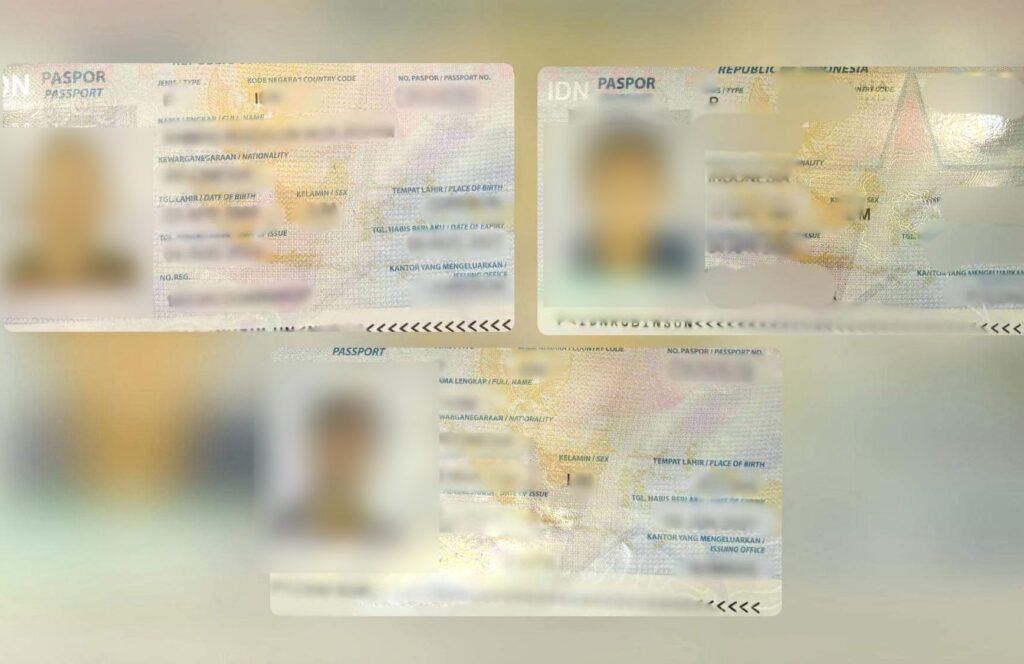
Operatives of NBI-7 are probing the whereabouts of three Indonesian nationals whose passports were discovered inside one of the vaults at the Lapu-Lapu City Pogo hub. | Contributed Photo
CEBU CITY, Philippines – Authorities are now in the process of tracking down three Indonesians, whose passports were found sealed inside a metal vault retrieved from the recently uncovered Pogo hub in Lapu-Lapu City, Cebu.
The National Bureau of Investigation in Central Visayas (NBI-7) aims to determine the possible connection of the three men to the Pogo hub that was raided last August 31.
“We are in the process of requesting the Bureau of Immigration to check as to their status, as well as coordination with the Indonesian embassy. Because these three passports are Indonesian nationals,” stated NBI-7 director Lawyer Renan Oliva.
These passports were among the items that were found hidden inside the three vaults that they forcibly opened on Thursday, September 16.
The owners of the documents, however, were not among the 162 foreign nationals, who were rescued inside the Tourist Garden Hotel in Brgy. Agus.
To answer the question of whether these individuals were escapees of the Pogo hub or not, authorities are probing their current whereabouts.
Oliva pointed out that many of the rescued foreigners claimed that their passports were taken by their employers and that they had to pay US $2,000 to get it back.
Aside from the passports, operatives also found at least 241 mobile phones, sim cards, and other documents suspected to have been used in the operation of the Pogo hub of illegal scams.
The mobile phones, along with the computer sets, will be subjected to an examination once a warrant for disclosure of data will be issued as requested by NBI-7.
Special investigator Wenceslao Galendez, for his part, disclosed their suspicions that these specific items were hidden away because they contain vital information.
“We believe they secured that cellphones inside the vault because it contains vital information. Not just information, it may contain proceeds of their illegal activities,” he stated.
READ: Cellphones, passports, and keys among items found in vaults of Lapu-Lapu’s Pogo hub
Galendez added that they will be examining whether the mobile phones and sim cards are connected to any form of electronic wallets that could have been used to store the Pogo hub’s proceeds before it is harvested.
He highlighted that operators of illegal business typically follows layering, wherein money is transferred from one account to another with the goal of hiding the destination account.
Meanwhile, the Bureau of Internal Revenue (BIR) is also probing the compliance of several companies, which have ties to the hotel, in paying their taxes.
“Compliance is different. Then also for whatever taxes that’s due to them, that will be another thing. So mao na atong i-check,” said Lawyer Isaac Darcera III from the BIR legal division.
Oliva added that they are looking at an angle that the Lapu-Lapu Pogo hub operators possibly made use of dummies to establish a front to hide their illegal activities.
“The BIR, together with the NBI and PAOCC, is looking at that angle that Filipinos were used as dummy to open front-operations,” he stated. /clorenciana

